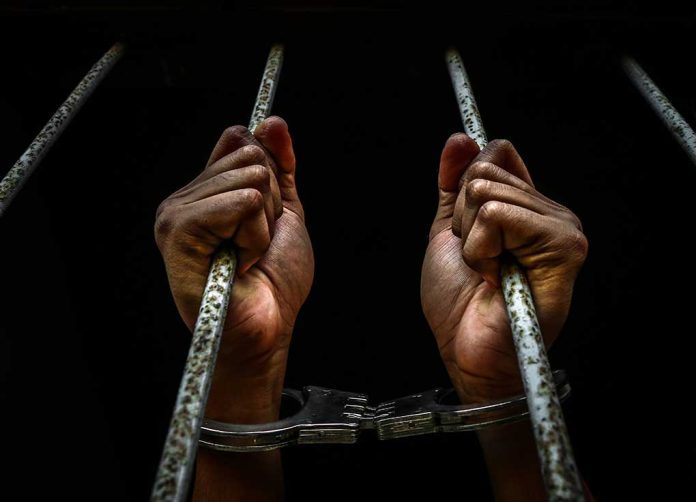
Miguel Angel Treviño Morales, “Zeta 40,” is accused of managing the feared Northeast Cartel from within Mexican prison walls.
At a Glance
- Miguel Angel Treviño Morales is accused of leading the Northeast Cartel while imprisoned.
- Arrested in 2013, he allegedly continued to exert influence over cartel operations.
- The CDN cartel has been implicated in drug trafficking and violent attacks.
- The U.S. seeks Treviño Morales’ extradition, facing delays in court appeals.
The Indictment Against Treviño Morales
Miguel Angel Treviño Morales, known as “Zeta 40,” has earned a notorious reputation for allegedly controlling the Northeast Cartel (CDN) while incarcerated. An indictment recently unveiled in the District of Columbia alleges his continued leadership of the cartel, alleging that even behind bars, Treviño Morales has remained influential. The leader’s involvement in extensive criminal activities such as drug trafficking and money laundering stands central to the charges against him, potentially culminating in a life sentence if he’s convicted.
Despite being imprisoned since 2013, Treviño Morales reportedly orchestrated operations via intermediaries, including family members. His brother, Omar Treviño Morales, reportedly played a key role in establishing the CDN after the Zetas cartel’s disbandment. The indictment underscores the potential loopholes within the Mexican prison system, which may allow inmates to maintain contact and control over external operations.
Zeta drug lord continued to control cartel from inside a Mexican prison, says US indictment https://t.co/swmDfldEeZ
— The Associated Press (@AP) October 17, 2024
Impact of the Northeast Cartel
The Northeast Cartel has become a formidable force, particularly in Nuevo Laredo, known for its aggressive tactics and violent clashes with military forces. Recently, CDN’s members have been linked to numerous attacks on army patrols, resulting in casualties and escalating tensions in the region. This cartel’s notoriety is not just confined to Mexico, as its illegal ventures have an impact on communities across the U.S.
The indictment accuses the cartel of engaging in various criminal enterprises. U.S. Attorney Jaime Esparza criticized the brothers for their alleged violent reign in Mexico and the U.S., framing them as significant threats to bilateral safety and security. Extradition proceedings hit snags due to legal appeals, but pressure mounts as authorities aim to secure Treviño Morales’ transfer to face justice in the U.S.
Challenges in the Extradition Process
The U.S. has long-sought Treviño Morales’ extradition to ensure accountability through their judicial system. However, such efforts often stall due to prolonged court appeals, a common scenario with cartel chiefs resistant to extradition. Their preference to stay in Mexico is attributed to the relative leniency or operational flexibility they may find within the local incarceration system compared to the strict U.S. prison protocol and penalties.
Relatives purportedly involved in CDN activities, such as Juan Gerardo Treviño, have faced deportations to the U.S. Recent deportations underscore the entangled, cross-border efforts to clamp down on cartel operations while highlighting the loopholes exploited by these networks.





